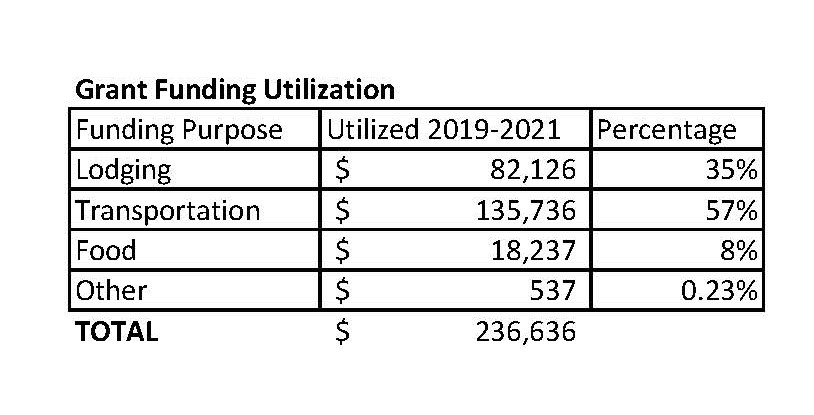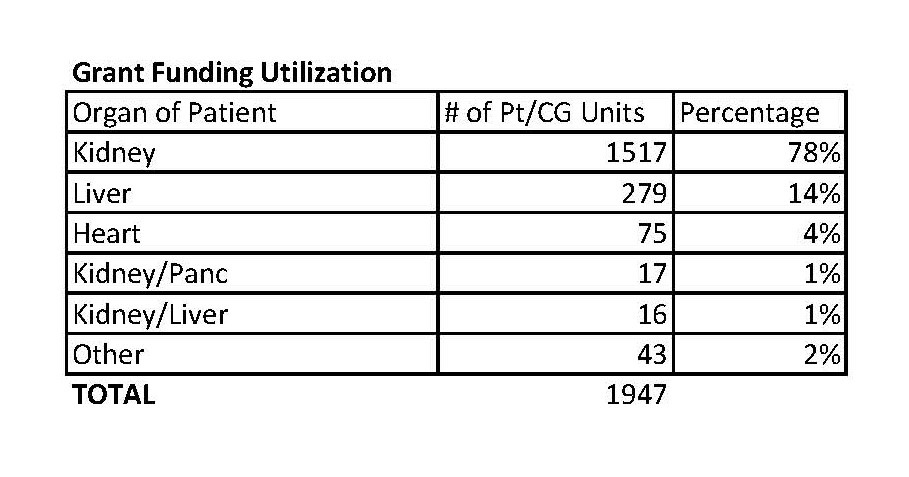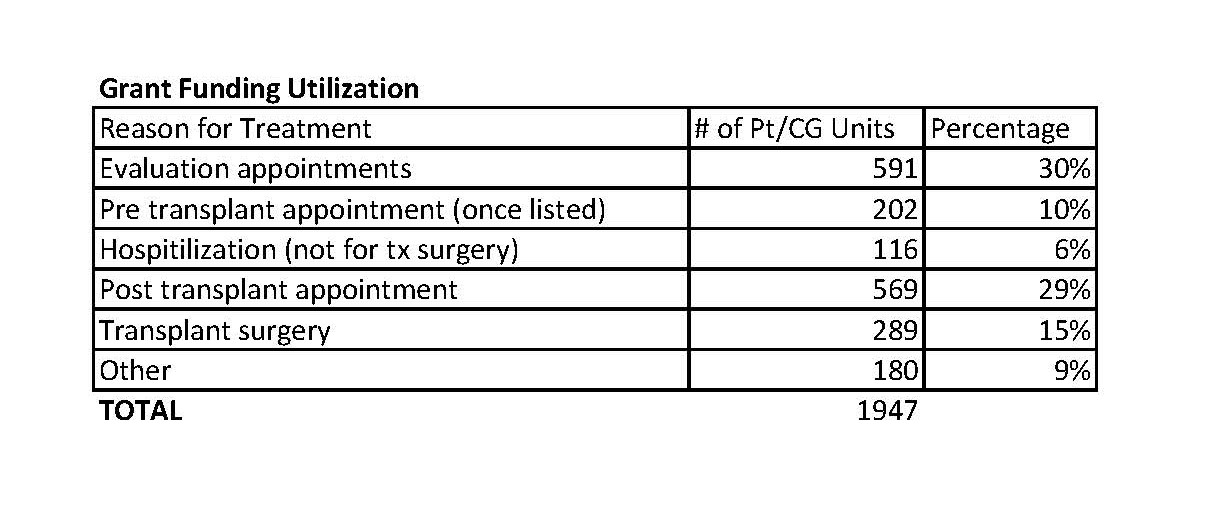Grant funding to support increased access to transplant care for patients and caregivers
Talia Giordano1, Jan L Weinstock Esq.1,2.
1Caregiver Lifeline Program, Gift of Life Family House, Philadelphia, PA, United States; 2Administration, Gift of Life Donor Program, Philadelphia, PA, United States
Introduction: Patients experiencing end-stage organ failure face many challenges that can result in financial distress for the patient and caregiver. Financial distress can limit access to transplant care, which has become an increasing concern as the transplant list continues to grow and disparities in access are highlighted. Our region’s Organ Procurement Organization (OPO)’s affiliated transplant hospitality house supports the lodging, transportation and support needs of patients traveling into one city for treatment at its 7 city transplant centers. The remaining transplant Regional Centers (RC) in the OPO region are located outside of the city in areas not supported by the hospitality house. Interviews with RCs highlighted that RCs' transplant patients needed assistance for travel and lodging to support access to transplant care.
Method: The OPO affiliated Foundation established The Transplant Center Family Support Grant Program through which 9 RCs can apply for up to $25,000 a year to support their patients’ travel, lodging and food needs related to their transplant care. Each RC application was vetted and approved based on the grant guidelines. Approved applicants were required to implement systems for releasing and tracking disbursed funds and submit quarterly logs with de-identified information on utilization.
Results: Between 2019-2021, 9 hospitals received a total of $313,371. Grant funds were distributed to 1,947 non-unique, patient/caregiver units (Pt/CGs), totaling $236,636 in utilization and an average of $121 per distribution. Of the $236,636, $135,736(57%) was utilized for transportation support, $82,126(35%) was utilized for lodging support, $18,237(8%) was utilized for food support, and the remaining was other.

Of the 1,947 Pt/CGs receiving funds, 1,517 were to kidney Pt/CGs(78%), 279 were for liver Pt/CGs(14%), and 75 were for heart Pt/CGs(4%).

The primary reason for the Pt/CG support was as follows: 591(30%) were for Pt/CGs evaluation to be listed and 569(29%) for post-transplant appointments. Pt/CGs utilizing funds for transplant surgery was 289(15%) and the remaining(less than 10%) for each pre-transplant appointment (once listed), hospitalization (not for transplant surgery), or left blank. Based on the 3-year data, transportation support was the most significant need for Pt/Cgs. Similarly, kidney Pt/CGs presented most frequently with the largest need to facilitate evaluation and post-transplant appointments.

Conclusion: The Regional Centers Grant Program is just one example of a program that may enhance access to care, especially for Pt/CGs with limited means and difficulty accessing transportation, lodging and food. Further examination should be done of this program and other innovative programs to support access to care, particularly for those facing financial and other barriers to determine impact and effectiveness and promote equity in transplant care.

right-click to download
